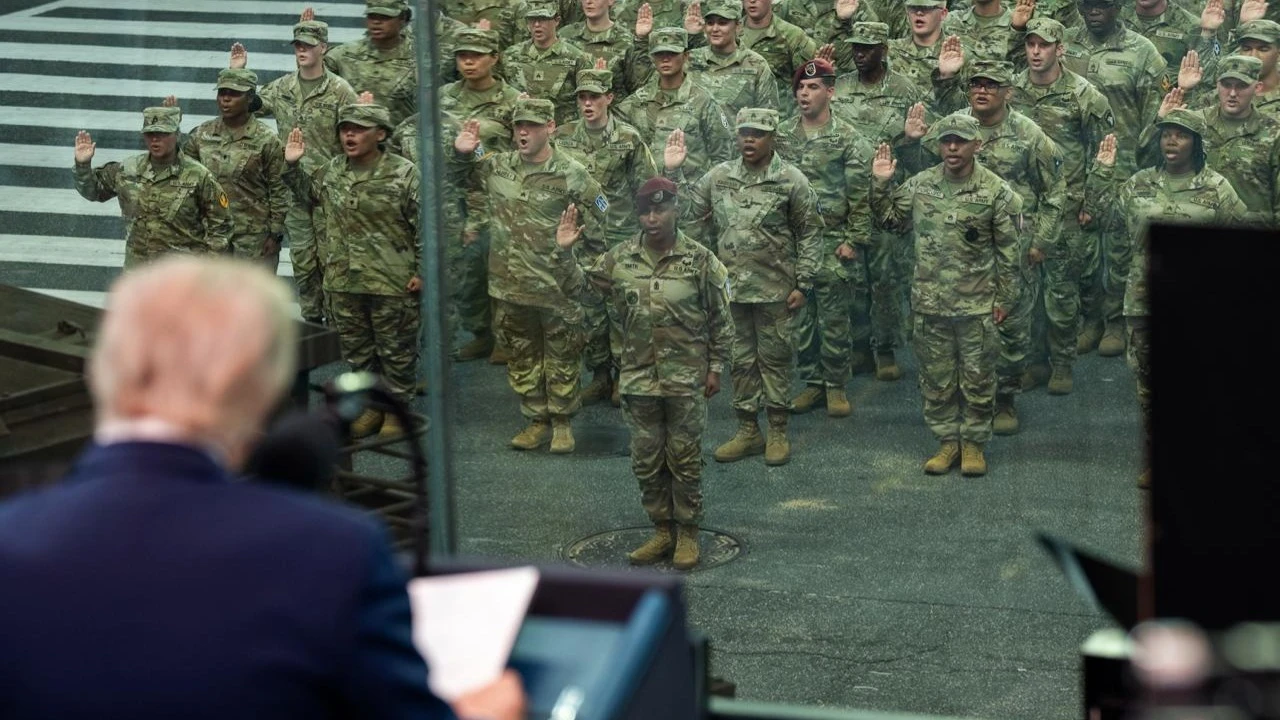U.S. tells Iran its attack was a one-off and does not mean the start of a war - WSJ

The United States, through Arab diplomats, has conveyed to Iran the message that its attack on Iranian nuclear facilities on the night of June 22 was a one-off: after that, it is time to return to negotiations, WSJ has learned. The development of the situation will now depend on Iran's response, whose capabilities are rather limited, the newspaper believes.
Details
The U.S. has conveyed to Iran that its attacks have ended after the strikes on the night of June 22 and it is time to return to negotiations, Arab diplomats, whose names the publication did not disclose, told The Wall Street Journal. In addition, the U.S. has made it clear that its goal is not to overthrow the current government in Iran, the newspaper's interlocutors said. This should bring relief to states close to Iran, which fear the risks of a chaotic transit of power in this country of 90 million people, the publication says.
A U.S. official told the WSJ that the U.S. contacted Iran to make it clear: This was a one-time attack, not the start of a war to overthrow the regime. The newspaper also did not reveal the name of its source.
The information from the WSJ's interlocutors is broadly in line with calls for peace from US President Donald Trump, who delivered the address after the US strikes on Iran, the newspaper noted. "I hope we won't need their services in that sense anymore," Trump declared, referring to the military. However, he noted that the current situation "cannot continue" and there will either be peace or "a tragedy for Iran, much worse than what has been seen in the last eight days."
"Remember: there are still many targets left. Today was the most difficult of them and perhaps the most deadly. But if peace doesn't come quickly, we will take on these other targets with precision, speed and skill," Trump warned.
It all depends on Iran's response. What could it be?
The sites attacked by the US - Fordow, Natanz and Isfahan - are key to Iran's nuclear infrastructure, the WSJ writes. Although the U.S. strikes appear limited, the very fact of the U.S. invasion threatens to expand the conflict, the newspaper said.
Iran has launched strikes against Israel after the US attack. But the country's leadership bought itself some time by minimizing in its statements the damage the U.S. caused to the country's nuclear program, the WSJ said. Iran claims that important equipment was taken away from Fordow before the attacks, and that damage to the facility was limited to the entrance tunnel. This reduces the pressure on authorities to respond quickly and harshly, The Wall Street Journal noted.
Iran's targets could include U.S. military bases and embassies in Iraq, Bahrain and other countries in the region. Gulf states that host U.S. military bases worry that the war could spread to their territories, the WSJ noted. Tehran could also try to close the Strait of Hormuz, through which a quarter of the world's oil exports pass, in the expectation that it would cause a supply crisis, skyrocketing prices and plunging global stock markets. That could prompt Gulf states and the U.S. to seek a diplomatic outcome, but there are risks: such a decision could lead to new U.S. attacks, the WSJ suggested.
The key question is whether Iran has the military capability to expand the conflict after days of Israeli strikes targeting Iranian weapons, military infrastructure and leadership: the arsenal of missiles is shrinking, the WSJ wrote. But Iran could engage armed groups in the region, a network it has built and funded for decades, the newspaper suggested. So far, these groups have stayed out of the conflict.
"Iran is in a much weaker position in a traditional confrontation. But we know it has other options, whether it's cyber capabilities, terrorist proxies and so on," Michael Sin, a senior fellow at the Washington Institute for Near East Policy, told the newspaper. TM Iranian Foreign Minister Abbas Araghchi said the U.S. struck when the sides were in the process of negotiations: "I think they [the U.S.] proved that they [the U.S.] are not people of diplomacy and that they only understand the language of threats and force, unfortunately," he noted in a WSJ statement. It is worth waiting for Iran's response before talking about the possibility of continuing the diplomatic path, the minister added.
